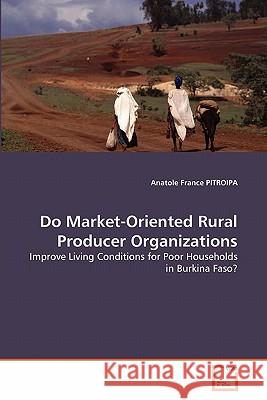Do Market-Oriented Rural Producer Organizations » książka
Do Market-Oriented Rural Producer Organizations
ISBN-13: 9783639287400 / Angielski / Miękka / 2010 / 56 str.
Based on the results of a survey conducted by the International Food Policy Research Institute (IFPRI) in 2003, this research assesses the impact of market-oriented RPOs (MOs) on the living conditions of small-scale farmers in the cotton producing areas of Burkina Faso. After controlling for a number of influences such as village size, household size, remittances, household education level, distance from market, household head gender, village accessibility during rainy season, existence of a local market, etc., the evaluation finds that RPO membership increases poor household living index by 17% and suggests that if funded and well managed, MOs are effective development tools that can benefit the largest number of Burkinabe people (90%) who live in rural areas and subsist on agriculture and agricultural-related activities.
Based on the results of a survey conducted by the International Food Policy Research Institute (IFPRI) in 2003, this research assesses the impact of market-oriented RPOs (MOs) on the living conditions of small-scale farmers in the cotton producing areas of Burkina Faso. After controlling for a number of influences such as village size, household size, remittances, household education level, distance from market, household head gender, village accessibility during rainy season, existence of a local market, etc., the evaluation finds that RPO membership increases poor household living index by 17% and suggests that if funded and well managed, MOs are effective development tools that can benefit the largest number of Burkinabe people (90%) who live in rural areas and subsist on agriculture and agricultural-related activities.











